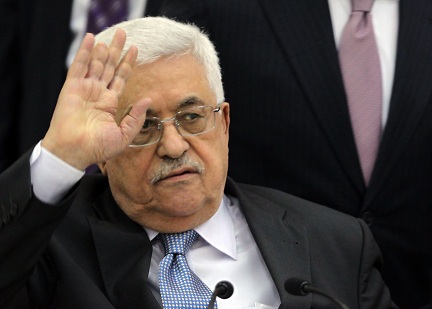JAKARTA: Preparing my next book, “Ceritalah: Indonesia” (Tell Me a Story, Indonesia), for publication — even if it’s just a compilation of past articles and essays about various aspects of Indonesia — puts things into perspective. It forces you to pause, to think and to reassess your life’s direction.
For me, a Malaysian in Indonesia, the process of selecting articles for the book is made all the more poignant because of recent events, including an incident in August in which Malaysian authorities arrested three Indonesian officers in disputed waters, heightening tensions between Indonesia and Malaysia.
I have to ask myself: what am I doing here? Why bother? Will I be thrown out? All in all, it’s been good taking stock. Indeed, I’m often asked why I, a Malaysian-born, British-raised lawyer-turned-writer should be so interested — obsessed, really — by Indonesia.
I first visited Indonesia back in 1995. At the time, I was astounded by Jakarta — its scale and sheer improbability. As I explored the republic I naturally began to understand and enjoy the diversity I found all around me. This was especially so coming from Malaysia, where issues of culture, language and faith are suppressed by a reactionary Malay-Muslim government.
Indeed, I was fascinated by the Indonesian sense of identity, the kenusantaraan. This only increased when I found that it could also embrace someone as restless and as kinetic as myself. To be Indonesian is an attitude. It is a sense of identification, favoring commitment to the nation rather than ethnic origin. It moves and it develops. It is not monolithic. It has, can and will change.
The archipelago has also been a rich source of inspiration and I have been fortunate enough to meet a whole range of people from all walks of life. In Jakarta, Bali, Palembang, Pontianak and so many other places I have met singers, palm oil farmers, bakso (meatball soup) sellers, bankers and schoolteachers. All of them have opened their lives to me to varying degrees, providing a rich source of material for my columns and my books.
Meeting people from across Indonesia and listening to their stories has also helped me understand my own identity better, making me more conscious of what ails Malaysia, and why its journey toward nationhood remains a stunted, unfulfilled dream compared with Indonesia. Malaysia is encumbered with a very narrow sense of national identity. We are divided by race and religion, and the barriers — reinforced by selective interpretations of our constitution — are seemingly insurmountable.
In Indonesia, however, identity is open-ended and shifting. This ability to be fiercely independent and yet simultaneously accepting has seen its people through decades of dictatorship and sectarian tensions.
Of course, Indonesia has changed tremendously since then. The brutality and venality of Suharto’s New Order administration — which was dominated by the military and characterized by a weakened civil society — has given way to a chaotic, though genuine democracy and precocious civil society that thrives today.
Indeed, Indonesia stands at the cusp of greatness and is poised not only to become very prosperous but also to make a unique contribution toward bridging the world’s seemingly discordant civilizations. And through it all, the rugged individualism — the battling against the accepted and the convention — that a senior journalist, poet and author Goenawan Mohamad believed as essential to the Indonesian character, has prevailed.
Not that everything is completely rosy in Indonesia, of course.
The country has recently seen several incidents of religious discrimination. The most recent attack on two leaders of a Batak Christian Protestant Church in Bekasi, West Java, allegedly by members of a Muslim hardliner group, should make it clear that Indonesia also has a long way to go in integrating its diverse peoples.
Furthermore, Susilo Bambang Yudhoyono’s presidency is entering a critical stage. The next couple of months will prove decisive as to whether or not he can lead his nation to the developed world — a formidable challenge for the sometimes temperamental leader.
It was against this backdrop, this confluence of feelings, ideas and possibilities that I decided to write “Tell Me a Story, Indonesia”.
My fifth since returning to Southeast Asia, the book is unique as it is my first publication to focus completely on Indonesia. The book will hit shelves in Indonesia in the next week or so. But it will not mark the end of my writing here.
This book will not be my last on this overwhelming and fascinating place. As life in Indonesia continues to ebb and flow, and as it rises on the global stage, I hope to tell more stories about this country that I have come to love so very much.
Karim Raslan is a columnist who divides his time between Malaysia and Indonesia. This article is distributed by the Common Ground News Service (CGNews) with permission from the author. It was first published by The Jakarta Globe, www.thejakartaglobe.com.


